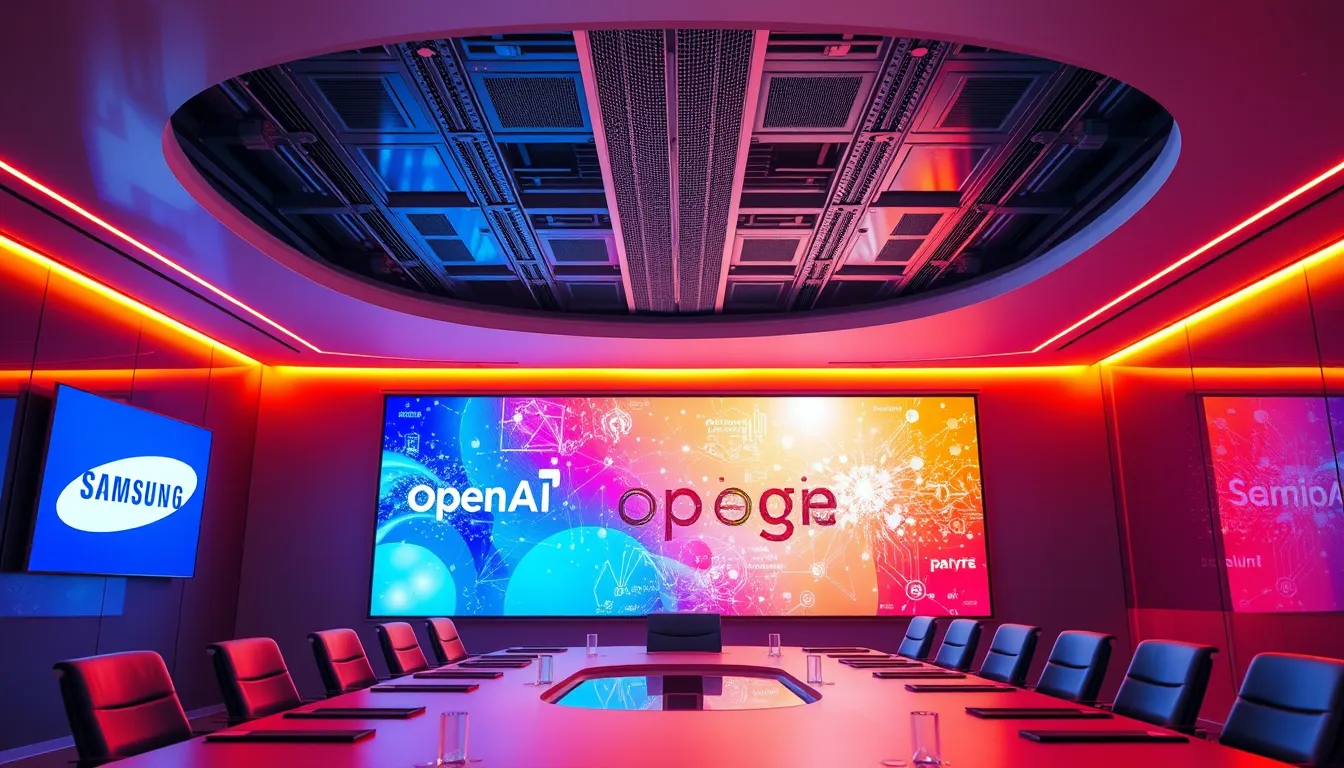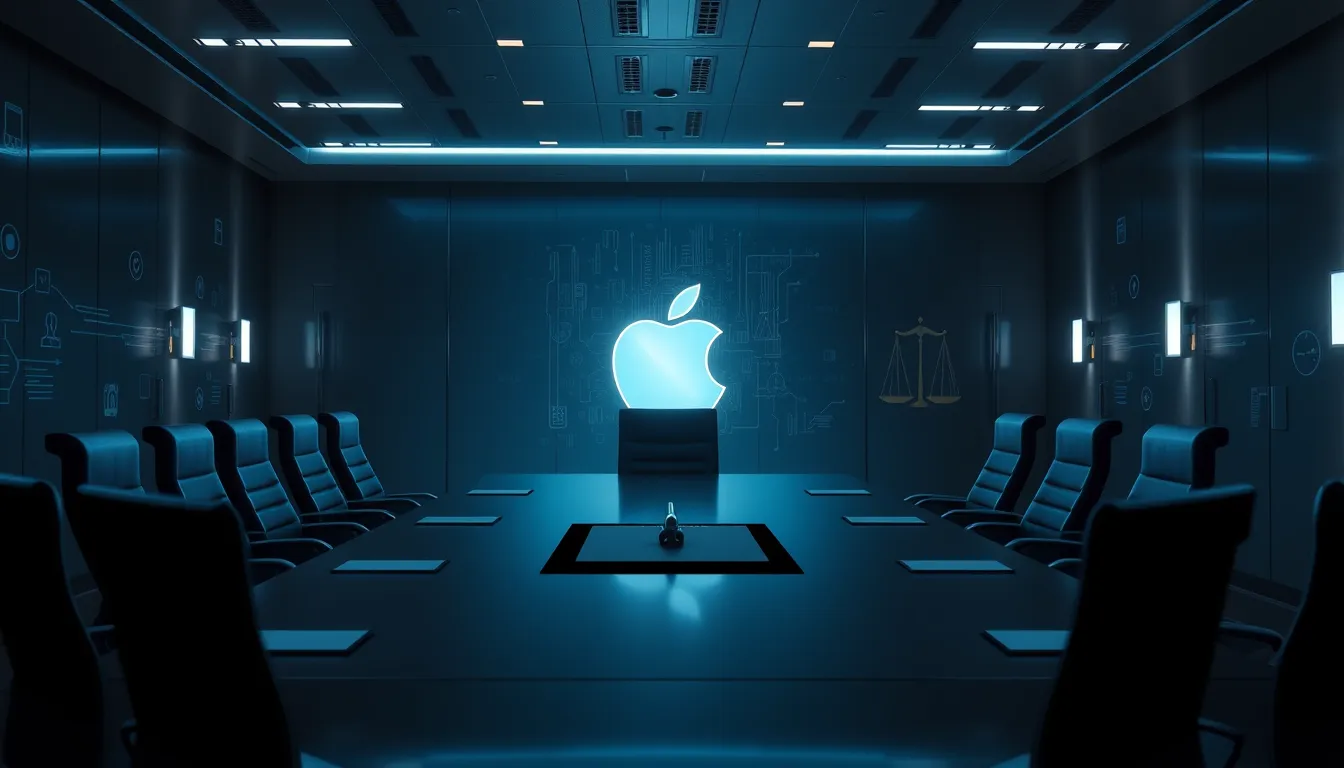Now Reading: Revolutionary OpenAI Samsung Partnership: Next-Gen AI
-
01
Revolutionary OpenAI Samsung Partnership: Next-Gen AI
Revolutionary OpenAI Samsung Partnership: Next-Gen AI

Revolutionary OpenAI Samsung Partnership: Next-Gen AI
In an era dominated by rapid technological advancements, the strategic alliance between OpenAI and Samsung is capturing the attention of industry experts worldwide. This revolutionary OpenAI Samsung partnership marks a significant milestone in the evolution of AI hardware innovation. By combining OpenAI’s state-of-the-art artificial intelligence research with Samsung’s cutting-edge semiconductor technology, both companies are set to redefine industry standards and set new benchmarks in AI model training.
The Strategic Alliance Driving AI Innovation
The collaboration between OpenAI and Samsung is far more than just a business arrangement. It is a forward-thinking initiative designed to address the increasing demands of complex AI systems. OpenAI, renowned for its pioneering work in AI research (visit their official site), has always prioritized pushing the boundaries of what artificial intelligence can achieve. On the other hand, Samsung, with its long-standing reputation for technological excellence (learn more), brings decades of semiconductor design expertise to the table. Together, this OpenAI Samsung partnership is set to deliver hardware solutions that are tailored to the unique requirements of modern AI applications.
Samsung Stargate Chips: Pioneering AI Hardware
At the heart of this collaboration are Samsung’s revolutionary Stargate chips. Developed as a next-generation high-performance processor, these chips are designed to handle the intensive computational workloads of today’s advanced AI models. Engineered for superior performance, the Stargate chips significantly improve data processing speeds while optimizing energy efficiency. Their role in this partnership demonstrates how hardware innovation can directly enhance AI model training and overall computational throughput.
Benefits of Samsung Stargate Chips for AI Models
One key area of focus in this partnership is the tangible benefits of Samsung Stargate chips for AI models. Some of the advantages include:
- Enhanced computational throughput, which reduces the time needed for training complex models.
- Improved energy efficiency, ensuring sustainable and cost-effective operations.
- Reduced latency, leading to faster real-time processing and decision-making capabilities.
- Robust integration with advanced AI software frameworks, thus boosting overall performance.
Such benefits are critical, especially as industries continue to rely on artificial intelligence for everything from natural language processing to autonomous systems. The integration of these capabilities under the OpenAI Samsung partnership could pave the way for revolutionary changes in multiple sectors.
Enhancing AI Model Training with Advanced Hardware
The emphasis on advanced hardware in the OpenAI Samsung partnership is not just about faster processing; it’s about creating a resilient infrastructure for future innovations. With the demand for AI solutions growing across various sectors such as healthcare, automotive, and finance, the need for sophisticated hardware that can keep pace with this expansion is more important than ever. The Samsung Stargate chips play a key role by ensuring that even the most complex AI models can be trained efficiently and effectively. Moreover, the partnership highlights a trend of combining software prowess with hardware sophistication to achieve unprecedented levels of performance.
The innovative combination of AI hardware and software is proving to be a game-changer. With faster training cycles, improved scalability, and a boost in overall operational efficiency, the OpenAI Samsung partnership stands as a prime example of how strategic collaborations can lead to significant breakthroughs in technology.
Strategic Implications and Future Prospects
This strategic collaboration carries deep implications for the future of both the AI and semiconductor industries. For OpenAI, leveraging Samsung’s advanced chip technology translates into enhanced model complexity and more efficient training processes. This paves the way for rapid advancements in AI safety, algorithmic optimization, and operational cost reduction. On the flip side, for Samsung, the successful deployment of the Stargate chips within a high-caliber environment reinforces its position as a key player in the future of AI hardware innovation.
Looking ahead, further collaborations and joint research initiatives between these two tech giants can be expected. The benefits of the OpenAI Samsung partnership extend well beyond immediate performance improvements; they signal a commitment to sustained innovation and a shared vision for a future where AI and hardware development evolve hand in hand. Industry insiders predict that this partnership will likely inspire other technology leaders to explore similar collaborations, igniting a cycle of innovation that could reshape the technological landscape.
In conclusion, the OpenAI Samsung partnership is more than just a merger of resources—it is a strategic move that combines superior chip technology with advanced AI research. The integration of Samsung’s Stargate chips will drive breakthroughs in AI model training, efficiency, and scalability, setting the stage for the next generation of technological advancements. As both companies continue to push the boundaries of what is possible, the future of AI hardware innovation looks brighter than ever.

























